WHAT TO EXPECT:
• Swelling for 1-3 weeks is normal!
• Some light bleeding or crusty material on a fresh piercing is normal and should be cleansed by following the steps listed below.
• Tenderness or soreness of the piercing site and surrounding area during the healing period is normal.
ORAL PIERCINGS
WHAT TO DO:
• Take Ibuprofen, suck on ice, or drink cold water to reduce inflammation.
• Rinse your mouth with alcohol-free mouthwash (Biotene, Crest Pro-Health, Tech2000, etc) after eating/drinking.
• Clean the outside of your mouth around the piercing using antibacterial soap and Neilmed aftercare spray twice a day.
• Visit your piercer after 3-6 weeks to have your jewelry replaced with a permanent piece.
Contact your piercer with any questions or concerns regarding your piercing.
Follow the aftercare procedures during the entire healing time, even if you think your Piercing has healed sooner. If an adverse reaction occurs contact Club Tattoo immediately. This is not considered a substitute for medical advice from a doctor.Consult a physician or healthcare professional for personalized medical advice.
WHAT NOT TO DO:
• Do not use alcohol, Hibiclens, Betadine, or petroleum-based products on your piercing.
• Do not drink alcohol or consume tobacco during the fresh pierced healing period of 14 days.
• Avoid oral sex or open mouth kissing during the fresh pierced healing period of 14 days.
NON-ORAL PIERCINGS
WHAT TO DO:
• Wash your hands with antibacterial soap before cleaning your fresh piercing.
• Clean your piercing, jewelry, and surrounding area with antibacterial soap daily.
• Liberally apply Neilmed aftercare spray using a Q-Tip 2-3 times per day.
• Visit your piercer after 3-6 weeks to have your jewelry replaced with a permanent piece.
• Contact your piercer with any questions or concerns regarding your piercing.
Follow the aftercare procedures during the entire healing time, even if you think your Piercing has healed sooner. If an adverse reaction occurs contact Club Tattoo immediately. This is not considered a substitute for medical advice from a doctor.Consult a physician or healthcare professional for personalized medical advice.
WHAT NOT TO DO:
• Do not use alcohol, Hibiclens, Betadine, fragranced soaps/lotions or petroleum-based products on your piercing.
• Do not twist or remove your body jewelry during the healing period.
GENITAL PIERCINGS: Follow the aftercare steps above. Be cautious when applying antibacterial soap as this may cause irritation to the urethra and vaginal opening. For piercings that are transurethral (pass through the urinary tract), or near the urethra, your urine will cleanse the piercing.
These guidelines are based on a combination of vast professional experience, research and extensive clinical practice. This is not to be considered a substitute for medical advice from a doctor.
